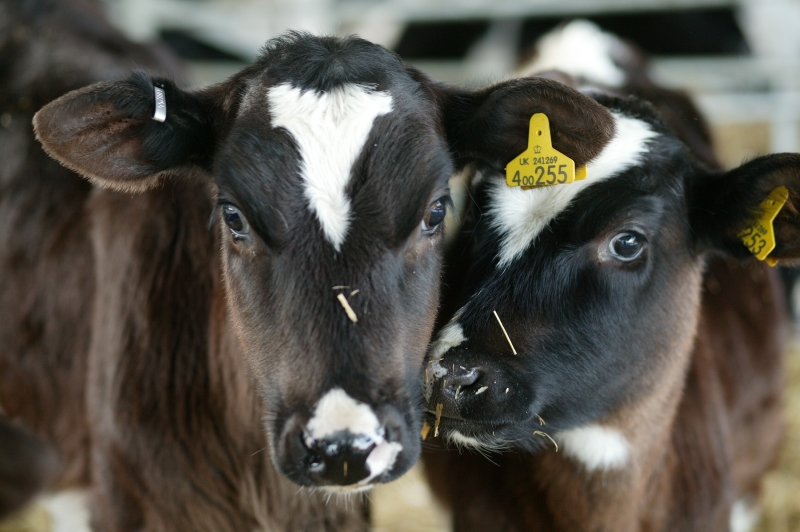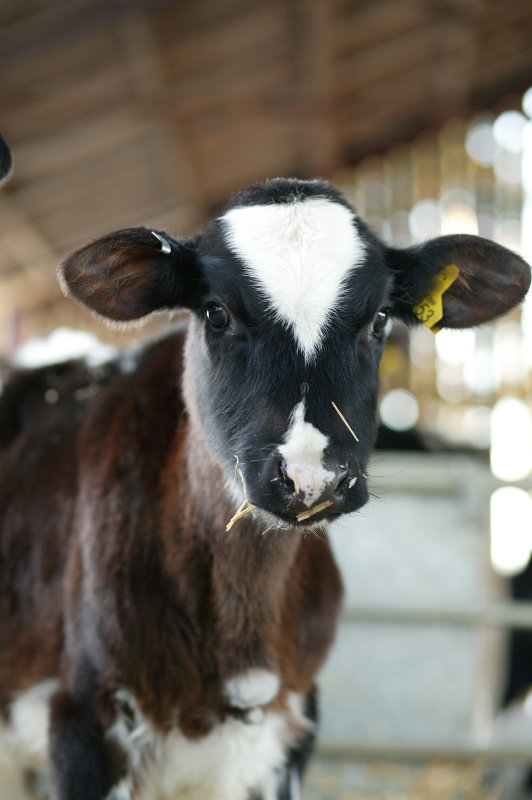The RVC seeks veterinary collaboration for UK dairy herd study
Researchers at the Royal Veterinary College (RVC) are seeking to enrol veterinary practices as they begin a study to determine and benchmark individual and herd-level passive transfer status across dairy herds within the UK. This is the first study to examine the issue from a UK wide perspective and will provide the largest amount of information to date which will inform best practice and benefit both farmers and vets.

Colostrum is essential for the provision of maternally derived antibodies to a new-born calf. This process, known as passive transfer, ensures that neonatal calves are given a degree of immune protection during early life.
Within the UK, the prevalence of failure of passive transfer at the individual-calf level remains high, evidenced by recent studies in Scotland and Southern England. However, existing studies are limited to a relatively low number of farms, all located within a specific region, making extrapolation to a national context difficult.
The study, led by RVC PhD student George Lindley, will harvest and compile prospective total protein data routinely collected by practitioners from calves between one and seven days old. This data, combined with a brief questionnaire, will be used to determine how farmers are managing the harvesting, storage and feeding of colostrum and benchmark enrolled herds.

Breed and gender differences will also be assessed, and the herd-level prevalence of failure of passive transfer determined. The project will also ascertain the achievability of newly proposed thresholds for the measurement of failure of passive transfer – something not yet assessed in UK dairy herds.
Practices that sign up are expected to collect consent from farmers prior to routine serum total protein sampling and record and store the results of any analysis, alongside records of calf age, gender, breed and farm. A questionnaire, lasting approximately 20 minutes, must be completed for each farm once during the study period. After agreeing to participate, practices which sign up will be contacted on a quarterly basis for collection of the data. Once collated, researchers will anonymise and benchmark each farm, with the results provided to participating practices.
Participation is open to all veterinary practices with any number of dairy clients within England, Scotland, Wales and Northern Ireland. The project commenced in late 2022 and will run until October 2023.
George Lindley, PhD student at the RVC, said:
“There is a wealth of information being collected routinely by farm vets regarding passive transfer which, if compiled, may provide helpful information regarding the health and welfare of calves born on dairy farms within the UK. During this study, we hope to harvest that data in a way that adds little extra work to vets and practices involved but provides useful information for stakeholders and the industry as a whole.”
The project is funded by the Barham Benevolent Foundation. Results are expected to be published in early 2024. Interested parties can request further information or get involved by contacting George via email: ptresearch@rvc.ac.uk.
Notes to Editors
For media enquiries, please contact:
- jasmin.devivo@plmr.co.uk or rvc@plmr.co.uk
- Press Line: 0800 368 9520
About the RVC
- The Royal Veterinary College (RVC) is the UK's largest and longest established independent veterinary school and is a Member Institution of the University of London.
- It is one of the few veterinary schools in the world that hold accreditations from the RCVS in the UK (with reciprocal recognition from the AVBC for Australasia, the VCI for Ireland and the SAVC for South Africa), the EAEVE in the EU, and the AVMA in the USA and Canada.
- The RVC is ranked as the top veterinary school in the world in the QS World University Rankings by subject, 2022.
- The RVC offers undergraduate and postgraduate programmes in veterinary medicine, veterinary nursing and biological sciences.
- The RVC is a research led institution with 88% of its research rated as internationally excellent or world class in the Research Excellence Framework 2021.
- The RVC provides animal owners and the veterinary profession with access to expert veterinary care and advice through its teaching hospitals and first opinion practices in London and Hertfordshire.

